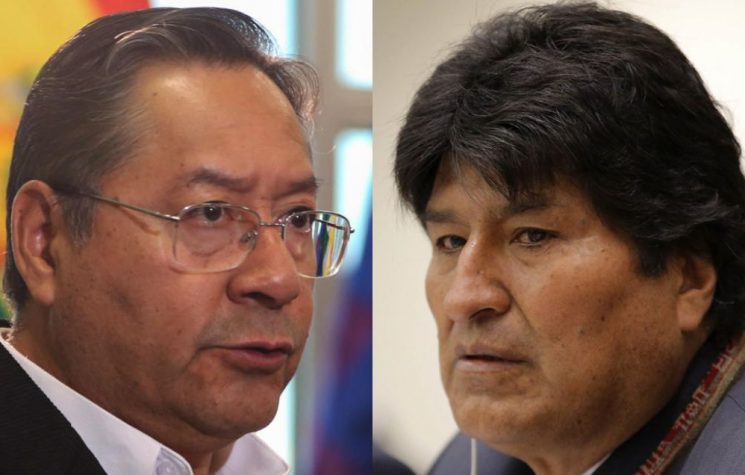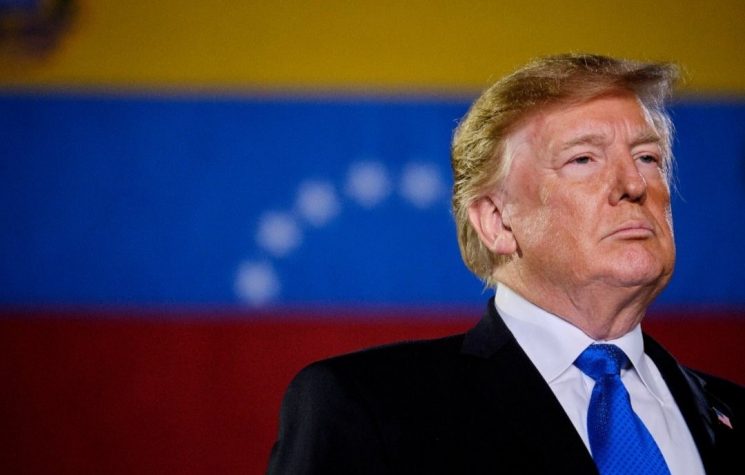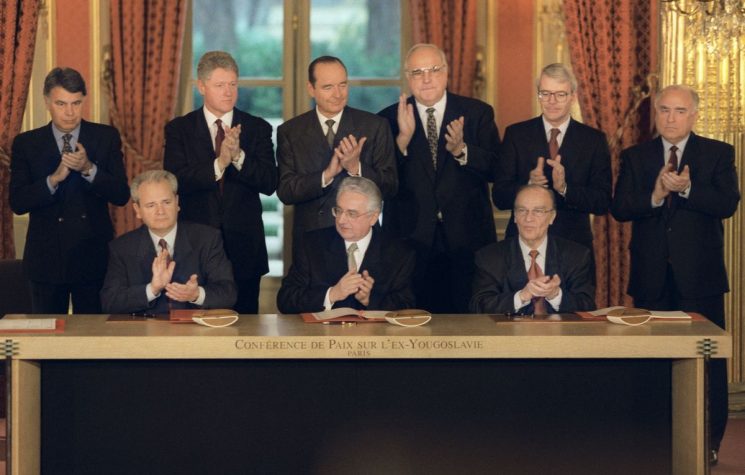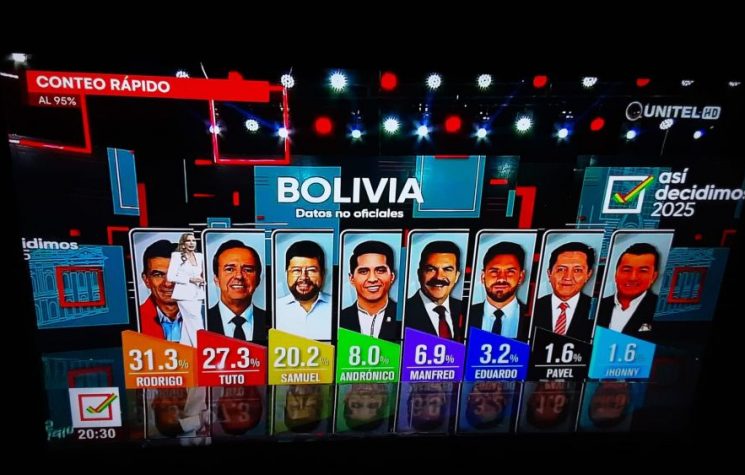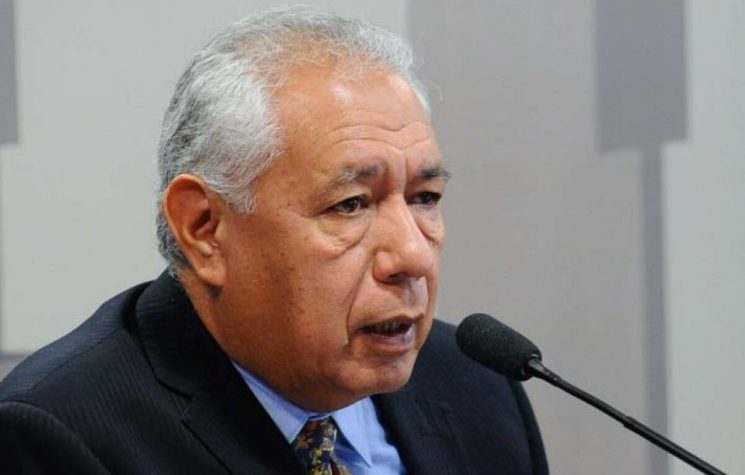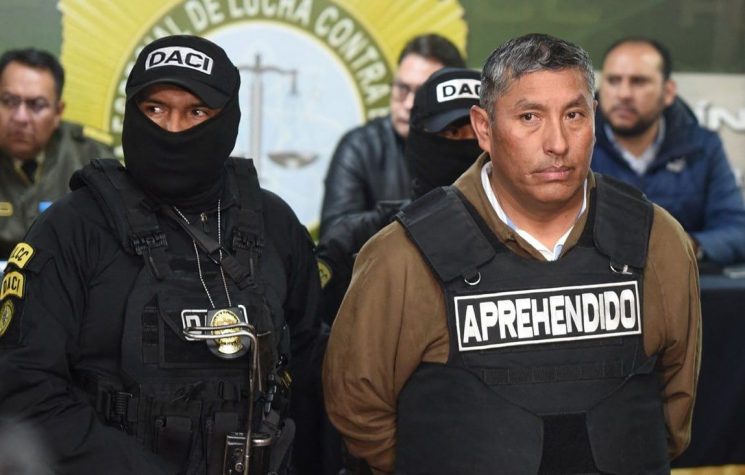There are indications that sections of the Serbian public are waking up to the existential danger to life and health posed by their government’s shady deal with a predatory corporation.
Contact us: info@strategic-culture.su
A famous person (was it Karl Marx?) once remarked that when history repeats itself, the first time it is a tragedy, the second time a farce. Many of Marx’s important predictions may not have come to fruition exactly as he wanted, but on this one he was spot on.
The recent commotion in the South American country of Bolivia may be regarded as an illustration. The potential tragedy part of the drama was the 2019 coup, executed professionally according to the regime change rulebook in order to seize Bolivia’s valuable lithium deposits and incidentally despoil it’s long-suffering and impoverished citizens of all their mineral wealth. In that coup, President Evo Morales, the indisputable champion of the bulk of Bolivia’s majority indigenous population, was ruthlessly deposed. The farce is the amateurishly attempted replay of that episode on 26 June, which in spite of best laid plans unexpectedly went awry. The farce took all of three hours to collapse.
On both occasions, in 2019 and on 26 June 2024, the principal points of contention were Bolivia’s vast lithium deposits, estimated at 21 million tonnes, and for whose benefit they would be exploited. A related but equally fundamental issue was (and still very much is) Bolivia’s orientation in the geopolitical arena, whether it would side with the BRICS block or the collective West. In everything but the operation’s outcome in the farcical stage, the symmetry between the two coups was evident.
In 2019 the intended rapine of Bolivia’s natural resources, with lithium deposits at the top of the plunder list, initially was successful but ultimately it failed. To be sure, the regime change manual was followed faithfully. After shameless electoral interference with abundant cash and a flood of corrupt media disinformation, Evo Morales’ commanding lead in the 2019 elections was whittled down to a manageable level so that his electoral victory could be plausibly portrayed as stolen. In standard fashion, rented mobs demanded his withdrawal and commissions were set up by vassal entities such as the Organisation of American States to declare that the election process was fraudulent. At the appropriate moment, army officers who almost to a man were graduates of the notorious subversion academy, the School of the Americas (since innocuously renamed Western Hemisphere Institute for Security Cooperation to cover up its criminal tracks) were activated to administer the coup de grace to Morales’ presidency, or so it was expected. The legally re-elected, however narrowly, President Morales was compelled to flee for his life into exile. A dumb and as it turned out also venal, but extremely cooperative, Aryan blonde without a drop of Inca blood, Jeanine Áñez, was invested with the presidential sash and illegally installed to replace him.
The multinational lithium cartel could now rub their hands and gloat over the succulent Bolivian pickings that had fallen into their lap, a booty Butch Cassidy and the Sundance Kid could only have dreamt of.
Elon Musk, one of the rapacious magnates who was deeply involved in the coup and who was in dire need of lithium to power his electric car venture, publicly flaunted his complicity in the affair, instigated to thwart the political will of a long-suffering and impoverished nation. He arrogantly boasted that “we will coup whoever we want” when asked to explain his sordid role in overthrowing a democratically elected foreign government.
But it was a short lived party. Bolivia’s unwashed masses, the Andean “deplorables,” stubbornly refused to play by the script. Following months of civil disobedience by the abused population, Bolivia became virtually ungovernable and it was the coup regime that finally had to give in. After a new election, Bolivia returned to constitutional rule under the legally elected current President Luis Arce, Morales’ protégé and former finance minister.
The stage was set for the recent farce the moment Evo Morales announced his intention to run for President in the forthcoming 2025 elections. His stand-in Luis Arce’s patriotic policies were bad enough for the cabal, particularly his plan to treat Bolivia’s national resources as the common patrimony of its people, to explore the use of safe lithium extraction technologies developed by Russia, and to apply for membership in BRICS. But the prospect of their charismatic bête noire Evo Morales’ being elected again next year was simply intolerable for both oligarchies, the international and the domestic.
The big lesson of the failed attempted coup in Bolivia is that the hegemon’s bag of tricks is nearly empty and that its technologies of control, which in the past had almost always worked brilliantly, are now faltering badly. It is futile however to try to teach an old dog new tricks. Taking a leaf from Alexander Lukashenko’s playbook during the foreign orchestrated upheaval in Belarus, instead of fleeing to seek refuge in a foreign embassy, which is what Latin American presidents have traditionally done in similar circumstances, Luis Arce decided to change the paradigm. He came down from his office, personally confronted the rebellious troops, all native Bolivians like himself, informed them that he was their legal President and commander-in-chief, and addressing them over the head of the treacherous School of the Americas graduate, General Juan José Zúñiga, who enticed them to mutiny on the false pretext of protecting democracy, Arce ordered them to return to their barracks. And lo and behold, obediently they did. After a brief stand-off in Plaza Murillo in front of the Presidential palace, the second Bolivian lithium coup fizzled pathetically.
But as the saying goes, you lose some and you win some. Whilst being chased out of proud Bolivia, the lithium cabal are scoring big in servile Serbia. Compared to Bolivia and other lithium rich countries, Serbia’s reserves are relatively modest, estimated at 1,3 million tonnes. It is nevertheless an attractive venue because its corrupt regime grants foreign concessions on the principle of baksheesh and is always keen to make under the table deals for a cut of the proceeds. It is as uninterested in the devastating impact of unregulated lithium mining as it is completely indifferent to where its munitions will end up in the Ukrainian conflict. The health of citizens theoretically entrusted to its care or the environment are the least of its concerns.
Mostly unnoticed by the rest of the world, for several years an intense lithium battle has been simmering in Serbia. Spearheading the international mining cartel’s assault on Serbia’s mineral wealth is the predatory Rio Tinto corporation, an outfit with a terrible record for environmentally destructive practices and callous exploitation of human labour. One suspects that the reason Rio Tinto and the Serbian government are getting on so well is that they are kindred spirits.
The crux of the Serbian situation is that the government does not have a policy of treating natural resources as the inalienable patrimony of the nation not subject to privatisation and which must be administered with regard for the common good. Rio Tinto’s objective, naturally, is the maximisation of profit for the least investment. There are other European countries such as Germany which have considerable lithium deposits but they also have strict environmental laws, high labour costs, and a much more ecologically sophisticated public than is the case with Serbia. That is why for Rio Tinto a symbiotic relationship with Serbia’s corrupt government is the perfect solution for getting a piece of the electric vehicle battery market at minimum expense. The waste its mining activities will leave behind once they cease to be profitable, turning productive agricultural land to waste and contaminating Serbia with poisonous substances that inevitably would seep into the water supply, is not Rio Tinto’s problem. It should be the government’s concern, of course, but like everywhere else where it operates Rio Tinto has the government in its pocket.
There are indications that sections of the Serbian public are waking up to the existential danger to life and health posed by their government’s shady deal with a predatory corporation whose track record is scandalous even by the abysmally low mining industry standards. Serbs do not have the stamina of Bolivians, but over the next several weeks protests are scheduled in the most endangered areas as well as in the remainder of the country.
It is unlikely that the protesters will stray very far from their comfort zone or that a general on a white horse (perhaps this time a graduate of the Suvorov military academy?) will appear to save the day. But as the situation unfolds it bears watching, and we will keep readers abreast of further developments as warranted.















